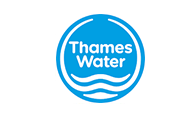We have written to Steve Reed MP, Secretary of State, to welcome him into his new role, introduce WRSE and ask the government to commit to urgent action to reduce demand for drinking water.
You can read it in full below.

Dear Secretary of State,
WRSE regional water resources plan
I am writing to welcome you to your new role and introduce Water Resources South East, the regional group for South East England, which has prepared the region’s first regional plan under the National Framework for Water Resources.
The South East is already classified as water scarce and our modelling shows that the region is facing a 2.7 billion litre shortfall in water supplies by 2075.
Our regional plan has set out how the deficit should be addressed and includes investment in new water infrastructure and a significant reduction in both leakage and customer water consumption. The regional plan has directly informed the WRMPs of our six member companies and we look forward to these being finalised in due course.
We are pleased to see that all the key infrastructure schemes identified in the regional plan have received funding in Ofwat’s Draft Determination and will continue to progress through the RAPID process into delivery. The regional plan and associated WRMPs have made the case for need for these critical schemes and the new Government will need to make important decisions around their approval in the coming years as Development Consent Order applications are made.
Timely delivery is essential to ensure water supplies remain secure and resilient, to support economic growth and to enable current levels of abstraction to be reduced from rivers and streams which are not sustainable in the long-term.
In fact, around half of the £19 billion investment in the regional plan is being driven by the need to replace around 1,300 million litres of water per day from existing sources, something that we will continue to engage closely with the Environment Agency on as it develops and implements its policies in this area to ensure the right balance is struck between improving the environment and the cost to customers who ultimately fund the investment required.
The demand management element of our plan is highly ambitious. At a regional level, around 850 million litres of water need to be saved through a combination of leakage reduction and water efficiency between 2025 and 2035 if water supplies are to remain secure. This is enough water to supply the current population of Hong Kong, with an average daily consumption of 110 litres per person.
The introduction of the Environment Improvement Plan targets and interim targets increased the reliance on demand management and meant that the overall regional solution is no longer the most cost-efficient, with a greater risk to security of supplies should customer behaviour not change to the extent required.
Achieving the targeted reductions in water consumption is dependent on new water-efficient policies being implemented by government to help embed water efficiency across society. The mandatory water label needs to be introduced and effectively rolled out by 2025 at the latest, minimum standards for water-using products need to be set and enforced by 2030 and building regulations need to be strengthened so we stop building new homes that are not water efficient.
Our modelling shows that should the savings from these policy interventions not be realised, we will need to spend around £2 billion more to secure our supplies. We ask for a commitment from the new government that these and other interventions identified in the Waterwise strategy are implemented at pace.
We would welcome to the opportunity to contribute to the new government’s emerging thinking in this area and have the capacity to use our regional investment model to help provide robust evidence to inform decision-making should this be of use.
Furthermore, we are also developing a set of recommendations on the future of water resources planning that we will share with you in the coming weeks that looks to increase the effectiveness and the efficiency of the current process, which we consider needs a thorough review and overhaul.
I hope to be able to discuss these important matters with you in more detail in due course.
Yours sincerely,

Chris Murray MBE
Independent Chair, WRSE
Copied to Emma Hardy MP, Martin Woolhouse, Defra.






